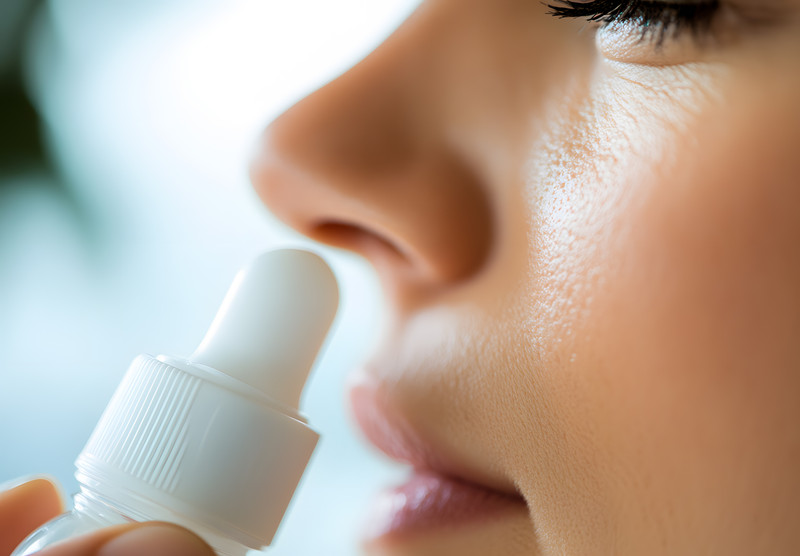Most of us know how annoying, icky, and inconvenient a clogged kitchen sink can be, but at least it’s a problem usually fixed in a finite amount of time, perhaps even less than an hour. Life isn’t always such an easy fix when our nasal passages are clogged, what we typically call nasal congestion.
Breathing becomes all that much more difficult when we are congested. In cases actually diagnosed as sinusitis (which involves a nasal infection and/or inflammation), symptoms can include nasal discharge (mucus/snot), cough, postnasal drip, and loss of sense of smell. There might also be pain or pressure in the forehead or elsewhere above the neck Nasal congestion can make us feel pretty much awful all over, unable to function at anything close to full capacity. Plus, who knows how long it’s going to last—days, maybe even a week or more.
Causes of Congestion
Sinusitis often accompanies a cold or other upper-respiratory infection or even hay fever, aka allergic rhinitis. Such an affliction produces inflammation accompanied by swelling that prevents proper drainage of the sinuses. And once those nasal passages are clogged, they can become a convenient (or inconvenient, depending on your perspective) incubator conducive to the growth of bacteria, viruses, and fungi.
Using Prescription Decongestants (?)
Medical science does offer treatments, namely prescription medicine such as antibiotics, nasal corticosteroids, antihistamines, and decongestants that can help make congestion somewhat more tolerable and hasten its departure. However, people diagnosed with high blood pressure or an enlarged prostate are wise to avoid decongestants containing pseudoephedrine. It’s a substance that can raise blood pressure, putting a person already with HBP at heightened risk of a cardiovascular event such as stroke or heart attack.
Such decongestants can also lead to “rebound congestion,” extending the length of illness during which nasal passages will likely sell. Besides, it is advised that these nasal decongestants should not be used for longer than three consecutive days.
Choosing the “Natural” Route
Another route a congestion sufferer can take to help clear out that clog is the use of natural remedies that can help clear out the gunk and make breathing better. Now, go ahead and say it: “Knowing that is a big relief.” Following are five supplements/herbs, or other natural “fixups that are available over the counter, no prescription necessary. However, you are strongly encouraged to talk over the use of any of these remedies with your personal physician or other healthcare professional. Know what you are getting into, or putting into you.
5 Natural Remedies for Nasal Congestion
Berberine. It’s been a while since we’ve mentioned the powerhouse, much-multifaceted “wonder” herb in this space. We’ll be quick this time. Studies have shown that berberine, among its many other uses, shows an anti-inflammatory effect on allergy rhinitis, presumably to include congestion. Enough said.
Vitamin C. This popular vitamin is often cited for its ability to boost the immune system. This helps in the effort to prevent colds and therefore should be able to help ward off congestion relate to upper-respiratory issues from colds or allergies. Because vitamin C is a potent anti-inflammatory and antioxidant it might be able to act as an antidote to oxidative stress which might be linked to inflammation.
Cinnamon. Although cinnamon-based natural remedies – specifically the extracts of cinnamon bark – are mostly associated with their use for regulating proper digestion and healthy blood-sugar and cholesterol levels, it has long been employed in traditional practices dating back centuries for treating autoimmune diseases and colds. That hints cinnamon-based remedies could useful for reducing symptoms related to allergies (rhinitis) and nasal irritations.
Neti pot. Okay, so this is not your typical “natural” remedy (neti pots, of course are manmade). But this nasal irrigation device uses a handmade saline solution (of salt and water, albeit sterile or distilled) to alleviate congestion and cough, enhancing a congested person’s breathing by clearing out mucus and germs. Saltwater, by the way, is used in neti pots so as not to further irritate nasal passages.
Spigelia. This is an ingredient found in homeopathic remedies such as those intended to alleviate sinus congestion connected to sinusitis, rhinitis, colds, etc. For use of any product containing spigelia, or any other homeopathic agent for that matter, it is best to discuss it first with a professional homeopath. Spigelia is reportedly best suited to target sharp pains on the left side of the face, which typically accompany exposure to cold, wet outdoor conditions.
As noted above, there are two main approaches for dealing with and reducing or shortening the effects of congested nasal passages. Actually, three choices, if you include doing nothing and choosing to live with congestion while trying hard to make friends with it – not recommended. One of the two recommended choices is by prescription medications, which often requires a doctor visit and then a detour to a pharmacy; the other is with natural remedies, such as the supplements, herbs, or the device mentioned above. Again, be sure to first discuss your use of any or all of these with you physician or other healthcare professional.

